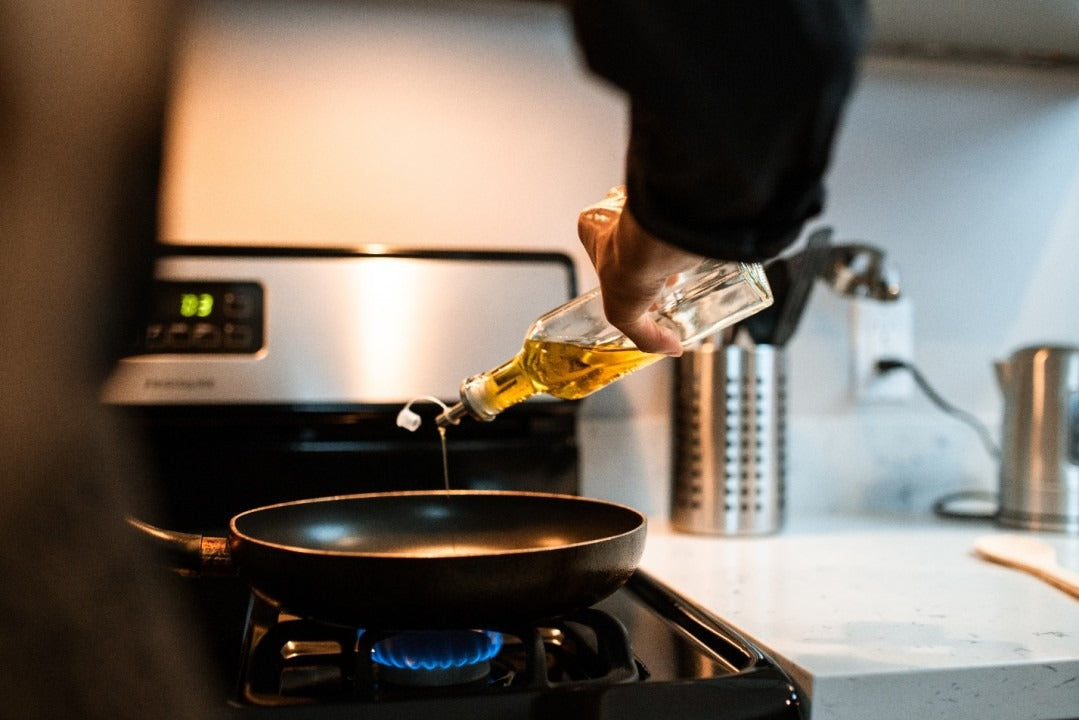For anyone who loves cooking, **knowing how to store olive oil** properly is crucial for keeping it fresh and flavorful. High-quality olive oil can elevate your dishes with its rich taste and aroma, but if stored incorrectly, it can lose its delicate balance. This guide covers the science behind olive oil preservation and offers practical storage tips to help you keep your olive oil in top condition.

Why Proper Olive Oil Storage Matters
Olive oil is more than just a cooking ingredient; it's also an essential part of a healthy diet. The way you store olive oil can dramatically affect its quality, impacting both flavor and nutritional benefits. Improper storage can cause oxidation, resulting in a rancid taste and diminished health benefits.

The Science Behind Olive Oil Deterioration
Oxidation and Light Exposure
The main enemies of olive oil are light, heat, and air. When exposed to these elements, olive oil undergoes oxidation, increasing its acidity and diminishing its flavor and nutritional value. Light exposure, in particular, speeds up this process, making it essential to store olive oil in a dark place.
Temperature Fluctuations
Temperature significantly affects the stability of olive oil. Ideal storage temperatures range between 57F to 70F (14C to 21C). Extreme temperatures, whether too hot or too cold, can break down the oil and reduce its beneficial properties.

Choosing the Right Container
Dark Glass Bottles
Dark glass bottles are recommended for storing olive oil as they block out light that accelerates oxidation. If your olive oil comes in a clear bottle, consider transferring it to a dark-colored one.
Stainless Steel Containers
Stainless steel containers are another excellent option for storing olive oil. They are impermeable to light and air, helping to keep the oil fresh for a longer time.

Practical Tips for Storing Olive Oil
Keep It Sealed
Always keep your olive oil tightly sealed when not in use. This prevents air from getting inside the container and causing oxidation.
Store in a Cool, Dark Place
Store your olive oil in a pantry or kitchen cabinet away from appliances that generate heat, such as ovens and stovetops. Avoid placing it near windows or other sources of natural light.
Avoid Frequent Temperature Changes
Try to keep your olive oil away from areas with frequent temperature changes. This can prevent the oil from breaking down due to thermal stress.
Determining the Shelf Life of Olive Oil
Even with the best storage practices, olive oil has a limited shelf life. Most high-quality olive oils will last between 12 to 24 months from the date of production. Always check the best-by date and consume the oil within this period for optimal flavor and quality.
Using Olive Oil Past Its Prime
If your olive oil has expired but hasn't developed a rancid smell or taste, you can still use it for non-cooking purposes, such as moisturizing wood, polishing furniture, or as a hair treatment.
FAQs on How to Store Olive Oil
Can I store olive oil in the refrigerator?
Refrigeration is not recommended for storing olive oil as condensation inside the bottle can affect its flavor and consistency. However, in extremely hot climates, it might be necessary. Just be prepared for the oil to become cloudy and solidify, but this won't harm its quality.
What if my olive oil solidifies?
If your olive oil solidifies, don't worry. Simply bring it to room temperature and it will return to its liquid state without affecting its quality or flavor.
How can I tell if my olive oil has gone bad?
Signs of rancid olive oil include a sour or stale aroma and a sharp, almost off flavor. If you notice these characteristics, it's best to discard the oil.
For more olive oil storage tips, visit our Olive Oil Tips page, or check out our Kitchen Guide for more kitchen essentials. You might also be interested in our article on Food Preservation for additional information.
Don't miss out on this insightful post about Kitchen Wall Tiles.
As an Amazon Associate, I earn from qualifying purchases.
As an Amazon Associate, I earn from qualifying purchases.






Leave a comment
This site is protected by hCaptcha and the hCaptcha Privacy Policy and Terms of Service apply.